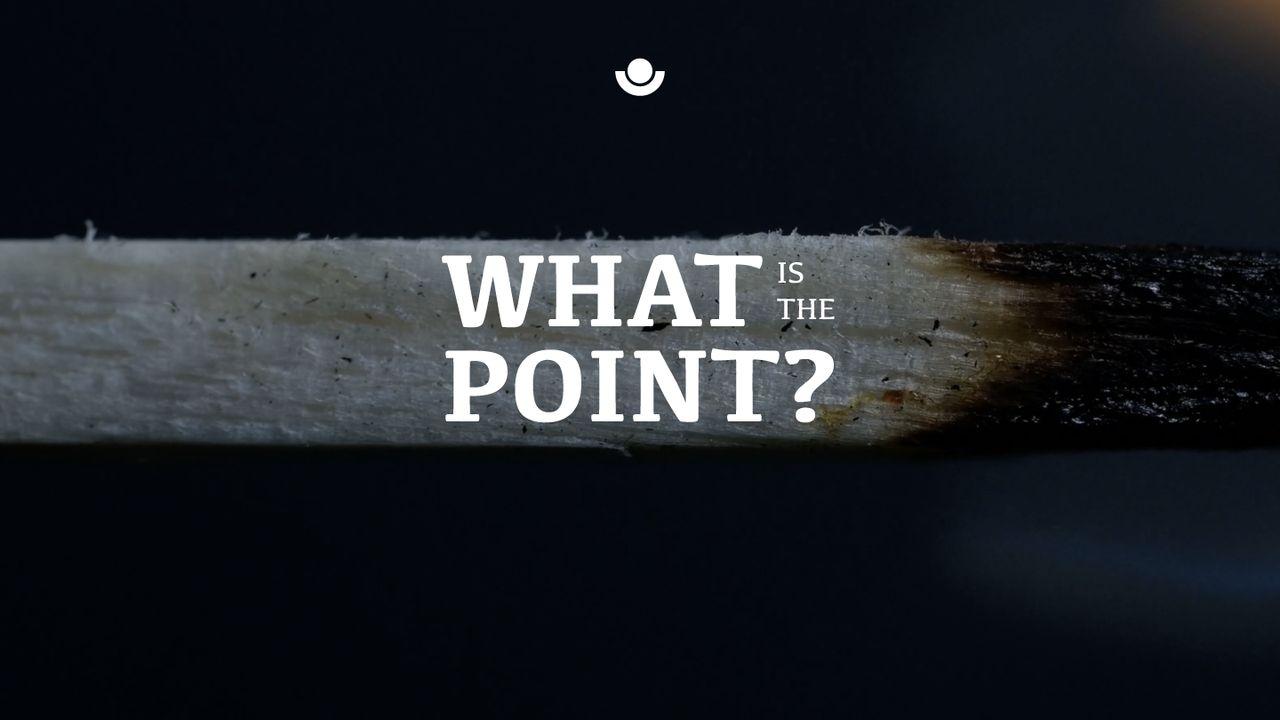What's the Point? (A Study in Ecclesiastes: Part 1)ಮಾದರಿ

There are three stops on Q’s quest for wisdom that we will look at in the next few days. First, he examines that being wise is better than being foolish. There are definitely benefits to wisdom, such as dealing well with money or earning favor, among others. However, Q finds that the ups and downs of life still happen to those who are wise and those who are fools. Both experience hardships and challenges in life that are beyond their control. Ultimately, both end up dying and leaving everything behind. There is greater wisdom we are searching for that is beyond what can be found “under the sun.”
Ask Yourself: How have you seen that wisdom is better than being foolish? How have you seen that the wise and the foolish are the same?
Pause to Pray: Ask God to help you see the benefits of wisdom and how it can be used to bring meaning to life.
Take the Next Step: Make a list of the benefits of wisdom. Think about how you can grow in wisdom in one area. [Bonus! Find the old Sunday school song, “Don’t Build Your House on the Sandy Land,” and consider its message about the wise and foolish.]
ಈ ಯೋಜನೆಯ ಬಗ್ಗೆ

God created us to find meaning in our lives. But we live in a broken world where we’re continually frustrated in our search. So, what’s the point of living life? This is the question the Teacher in Ecclesiastes is asking. At first, the message of this wisdom book seems to lead to despair, but in fact points to the hope of life found in God alone.
More
ವೈಶಿಷ್ಟ್ಯದ ಯೋಜನೆಗಳು

Rise and Write: Overcoming 3 Common Obstacles Christian Writers Face

Next Steps | a 3-Day Skate Church Movement Devotional

52-Week Bible Reading Plan

21 Days After City Week

The Full Gospel

Generations

Whole Bible in 11 Months: Chronologically Thematic

Chosen and Set Apart: Walking in Your God-Given Identity

Thriving at Work
